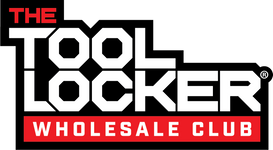
The Ultimate Mortar Mixer Buying Guide for Construction Pros
When it comes to construction projects, having the right tools is essential. Concrete and mortars mixers play a crucial role in ensuring the quality and consistency of your mortar or concrete mix. In this comprehensive buying guide, we will walk you through everything you need to know about mortar mixers, from types and features to choosing the right one for your needs. Let's dive in!
What Is a Mortar Mixer?
A mortar mixer is a specialized construction tool designed for precisely blending materials like mortar and concrete. Unlike general-purpose mixers, they ensure uniform consistency and are essential for projects like masonry and tile installation. Mortar mixers come in various types to cater to different project scales and are crucial for professionals in the construction industry.
Types of Mortar Mixers:
There are several types of mortar mixers available on the market, each catering to different project requirements. The most common types include towable mortar mixers, gas-powered mortar mixers, and electric mortar mixers.
Towable Mortar Mixers:
These robust machines are designed for substantial construction sites, making them ideal for large-scale projects. They are equipped with heavy-duty wheels, a trailer hitch, and a towing tongue for easy transportation to various job sites. Towable mortar mixers usually have larger drum capacities, ensuring you can mix significant quantities of mortar or concrete in a single batch. Their power source may vary, including gas and electric options, offering flexibility in choosing the most suitable one for your needs. Models like the Marshalltown 600CM Steel and Poly Drum Concrete Mixers are examples of towable mixers designed for substantial projects.
Gas-Powered Mortar Mixers:
Gas-powered mortar mixers are known for their mobility and versatility. They are perfect for construction sites without easy access to electrical outlets. These mixers typically feature a reliable gas engine, such as a gasoline or diesel engine, providing the necessary power for efficient mixing. Gas-powered mixers as the IMER Workman II 250 & 350 Concrete Mixers with Honda engine are often used for mid-sized projects and are capable of handling various types of mortar and concrete mixes.
Electric Mortar Mixers:
Electric mortar mixers, such as the Raimondi IPERBET Jobsite Power Mixers are a popular choice for smaller to medium-sized construction projects, particularly when a stable power supply is available. They are generally more compact and lightweight compared to their gas-powered counterparts, making them easier to maneuver in tight spaces. Electric mortar mixers are known for their energy efficiency and ease of use. They are perfect for tasks like mixing tile adhesives, thinset, grout, plaster, concrete or mortar for bricklaying or small-scale concrete work.
Handheld Mortar Mixers:
For tasks that require precision and control, a handheld mortar mixer is an excellent choice. These compact and portable tools, equipped with adjustable speed control, are mainly used for tiling projects, touch-ups, or situations where only a limited amount of mortar or concrete is needed. They are an excellent choice for mixing tile adhesives, thin set, cementitious adhesives, resins, paints and other materials. They are equipped with an interchangeable mixing paddle, allowing you to mix a wide variety of different materials directly in a bucket or container, just by changing the mixing paddle. Handheld mortar mixers such as the Rubimix 9-N PLUS Mortar Mixer from RUBI are convenient, especially for tiling, repair and renovation works.
Mixing Paddles:
Mixing paddles are versatile tools that can be attached to handheld mixers but also to drills (even if mixing mortar with a standard drill it is not recommended). They come in various sizes and designs, including single and double paddle configurations to adapt to every material. Used with the right handeld mixer mixing paddles are ideal for mixing mortar, concrete, plaster, and other construction materials efficiently. They offer excellent control over the mixing process, ensuring a consistent and well-blended mix.
Features to Look for in a Mortar Mixer:
When selecting a mortar mixer, consider the specific requirements of your project, including the size of the job site, available power sources, and the type of materials you'll be working with. Look for mixers with adjustable speed controls, as this allows for precise mixing and consistency. Additionally, consider the drum capacity, as larger drums are suitable for bigger projects, reducing the need for frequent refills. Ergonomic handles and wheels for easy transport are also important features, especially if you'll be moving the mixer around the job site frequently.
Tips for Choosing the Right Cement Mixer:
Determine Your Project Size:
The size of your construction project is a crucial factor in choosing the right cement mixer. For smaller projects like residential repairs, a portable electric cement mixer may suffice. However, for larger-scale projects, including commercial construction, a gas-powered towable mixer with a higher capacity is more efficient.
Consider the Drum Capacity:
The drum capacity determines how much cement or mortar you can mix in one batch. Larger drums reduce the need for frequent refills, saving time and effort. However, be mindful of the mixer's weight, as larger drums can make the unit less portable.
Check Portability:
Portability is essential, especially if you have to move the mixer around the job site. Look for mixers with sturdy wheels and ergonomic handles for easy transportation. Some mixers even feature a tilting drum for convenient pouring.
Think About Power Source:
Decide between gas and electric-powered mixers based on your job site's power availability and your preference. Gas mixers are more mobile but they are heavy and require a constant fuel supply, while electric mixers are suitable for areas with reliable power sources.
Frequently Asked Questions about Mortar Mixers:
Q: Can I use a concrete mixer for mortar?
A: While concrete mixers can technically mix mortar, it's not recommended. Mortar mixers, such as the Raimondi IPERBET Jobsite Power Mixer, are designed specifically for the job, ensuring proper mixing and a consistent mix. These dedicated mortar mixers are equipped with features tailored to mortar mixing tasks, making them the preferred choice for professionals in the construction industry.
Q: How do I clean and maintain my mortar mixer?
A: Cleaning your mortar mixer thoroughly after each use is essential. Use a hose and stiff brush to remove excess mortar or concrete. Grease moving parts regularly and keep the mixer covered when not in use to prevent rust.
Q: What Size Mixer Is Best?
A: The ideal mixer size depends on your project's scale. For small to medium residential projects, a mixer with a drum capacity of 3 to 5 cubic feet is typically sufficient. Larger commercial projects may require mixers with capacities ranging from 6 to 12 cubic feet. Choose a size that aligns with your project's demands to optimize efficiency.
Q: Gas vs. Electric Cement Mixer: Which Is Better?
A: The choice between gas and electric cement mixers boils down to your specific needs. Gas mixers offer mobility and are ideal for outdoor use but require a fuel supply. Electric mixers are suitable for areas with stable power sources and are generally more affordable. Consider your job site conditions and power availability when making this decision.
Q: Can I mix other materials with a mortar mixer?
A: Mortar mixers are primarily designed for mortar and concrete mixing. Attempting to mix other materials may damage the mixer and affect the quality of your mix.
Where to Buy Tools Online:
When it's time to invest in a quality mortar mixer, look no further than The Tool Locker. Our wide selection of mortar mixers and mixing paddles caters to the needs of construction professionals. We understand the importance of reliable equipment in your projects. Explore our range here and buy tools online with confidence. Your next construction project deserves the best, and The Tool Locker delivers. For additional benefits for contractors, take a look at the The Tool Locker Wholesale Club, with free shipping and exclusive deals!





Leave a comment